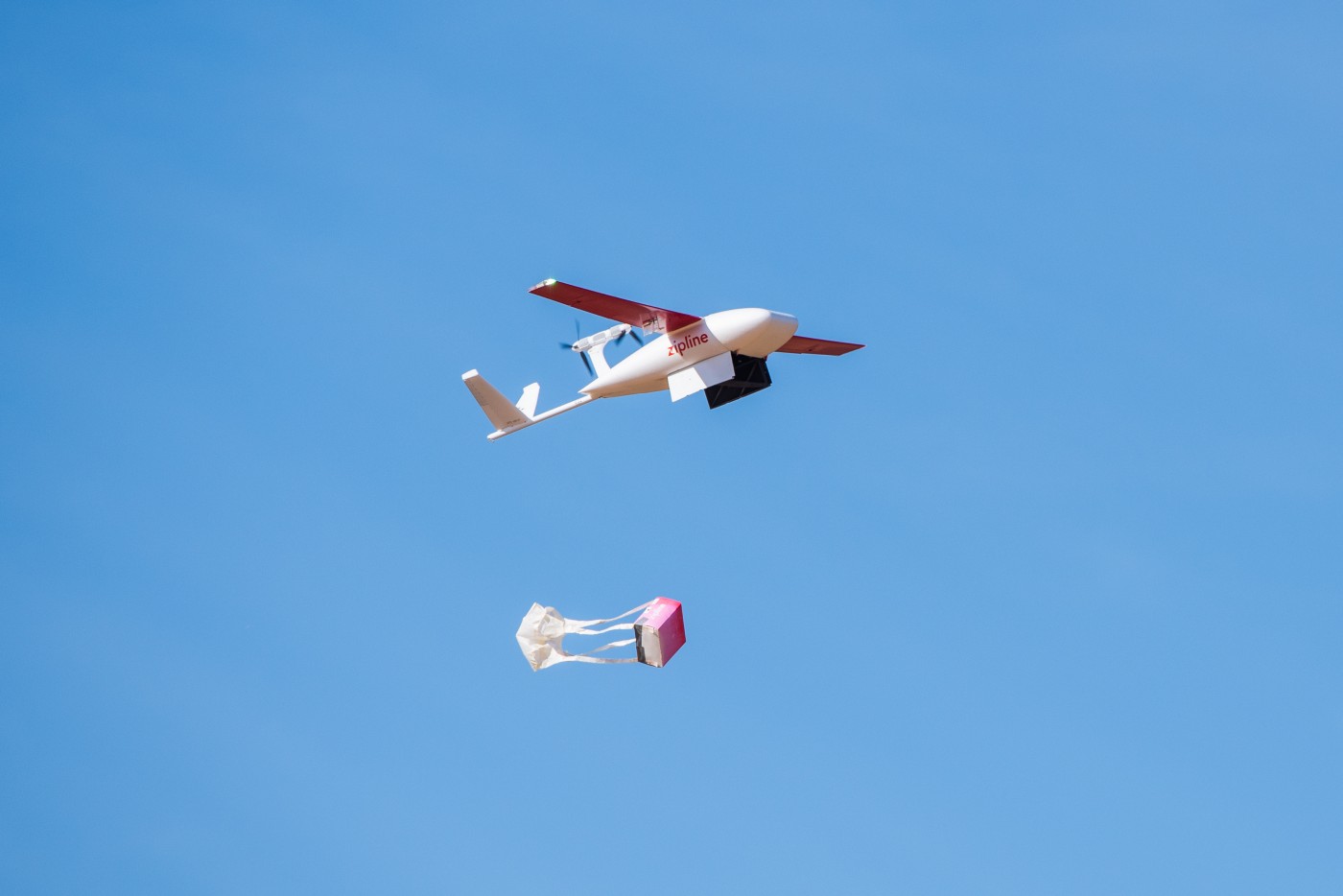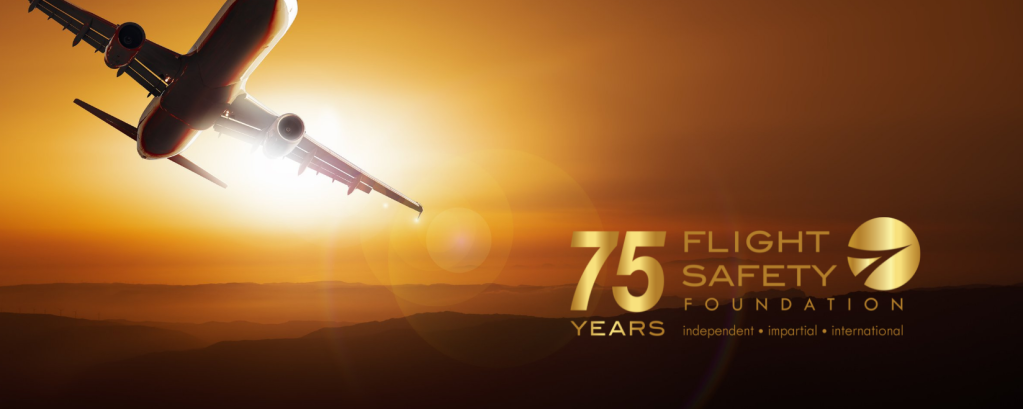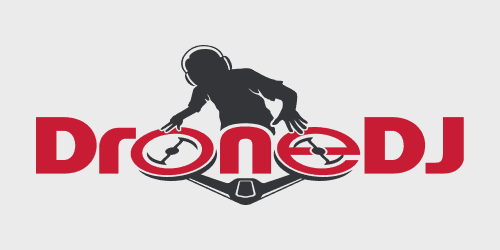
Trailblazing instant logistics company Zipline — along with its government partners in Rwanda and Ghana – is being honored later this month by the Flight Safety Foundation (FSF) for its contributions to global aviation innovation by its medical drone delivery work in Africa. Zipline’s go-to-market director Daniel Blay talks to DroneDJ about being chosen to receive the David Morrison Innovation Award and the company’s broadening, diversifying UAV activities around the world.
Since beginning with tightly-focused deliveries of blood products in Rwanda in 2017, Zipline has created increasingly sophisticated drone transportation networks across Africa that – among other things – supply COVID-19 vaccines, which require ultracold storage, to distant localities in Ghana. Its UAVs serve thousands of hospitals and health facilities across the continent and have completed over 425,000 missions, carrying more than 4.5 million products – including over seven million vaccine doses. In addition to aiding national African governments to extend healthcare to people and places that previously couldn’t receive it, Zipline has introduced numerous medicine and medical product delivery routes in US cities as well as services to islands in Japan.
Read: Zipline, Jumia forge African e-commerce drone delivery partnership
Meanwhile, it has rolled out commercial services for partners like Walmart and, more recently, became the logistics and delivery partner to online retailer Jumia — which now looks to add quick aerial transport of orders to its continuing revolutionization of Africa’s mobile phone-based e-commerce.
Blay talks about that bustling Zipline activity and what the FSF’s recognition says about it.
What does receiving the FSF’s innovation award mean to Zipline?
So many people view instant delivery as a distant, futuristic fantasy, but since 2016 we have made it an everyday reality for millions of people. It’s a huge honor to be recognized by the FSF, a leading non-profit aviation safety organization, for the work we’ve done in Ghana and Rwanda. I think this award is a real testament to the safety, reliability, and most importantly, impact of our instant logistics system.

What is the state of Zipline’s work aiding governments in Africa in delivering health care to remote communities today?
We partner with governments to build on and accelerate the work they’re doing to strengthen their health systems. Currently, that means operating at a national scale in Ghana and Rwanda, where we deliver medical products to thousands of health facilities. We also began deliveries in Nigeria this year and will soon begin delivering in Kenya and Côte d’Ivoire.
And while we started in Africa, we’ve taken our learning from there and applied it to the US and Japan. We complete a delivery every two minutes, and just this weekend, our drones flew more than three times the distance of the equator in one day. Our impact has been staggering.
For example, a recent study done by researchers at Wharton revealed that the adoption of Zipline’s instant logistics and delivery system in Rwanda resulted in an 88% reduction in in-hospital maternal deaths due to postpartum hemorrhaging.
What have the major lessons been – and adaptations made – to Zipline’s activity in Africa since it launched in Rwanda nearly half a decade ago?
The biggest adaptation we’ve had to make over the years is scaling this from delivering one product to one hospital to delivering tens of thousands of products to thousands of locations.
In order to do that, we’ve worked in lockstep with our partners – from regulators to expand our geographic footprint, to the hospitals and health facilities to understand their needs and inefficiencies, to the communities to realize their desire for us to expand our services beyond healthcare into agricultural and animal products, e-commerce, and more. We’ve taken these (lessons) and built a world-class logistics infrastructure that meets the demands of the 21st century and beyond.
Read: Zipline and NASA to envision future delivery drone and AAM flight
In addition to healthcare work, Zipline has also broadened its commercial delivery services in Africa by partnering with Jumia. How do medical and commercial networks differ?
Our recent partnerships, particularly with companies like Walmart and Jumia, show the immense versatility and potential of instant logistics. The future of delivery – whether that’s vaccines, diapers, or anything else – is instant, autonomous, and electric. The expansion of our commercial delivery work across the globe is a huge step towards making that future a reality.
Instant logistics can have profound implications on so many things in our world, including health equity, nutrition, and climate change. While the details differ – including use cases, customer needs, and regulator environments vary from location to location – the goal remains the same: to get people the products they need, when and where they need them.

You’ve also launched drone delivery service to islands off Japan. What else is Zipline pursuing around the world?
We launched in Japan in April, where Toyota Tsusho Corporation’s subsidiary Sora-iina is using our system to distribute medical supplies and food on-demand to health facilities and communities across the Gotō Islands. Next, we’re focused on getting our operations up and running in Kenya and Côte d’Ivoire and continuing to expand our footprint in Nigeria.
We also recently began our operations in Utah, where we are delivering prescriptions and over-the-counter products directly to consumers’ homes in the Salt Lake City area. We’re always looking for opportunities to expand our footprint and use cases in new and existing markets.
Apart from larger spaces requiring less over-flight of people in Africa, is there anything the rest of the world needs to learn from regulation there – or Zipline’s approach to that activity – that might enable faster scaling of global drone services?
No two airspaces are alike, and it therefore can be challenging to draw parallels between different countries with different societal expectations. While we’ve always tried to focus on the value this service can bring to a community and the impact those could see when it’s deployed at scale – from enhanced healthcare access, reduced street traffic, or even improved air quality – one constant is safety and reliability.
By working closely with regulators who propose creative solutions to difficult problems, like those in Rwanda and Ghana, and fostering their trust through transparency and collaboration, we’ve been able to drive immense value for their communities.
FTC: We use income earning auto affiliate links. More.

Comments